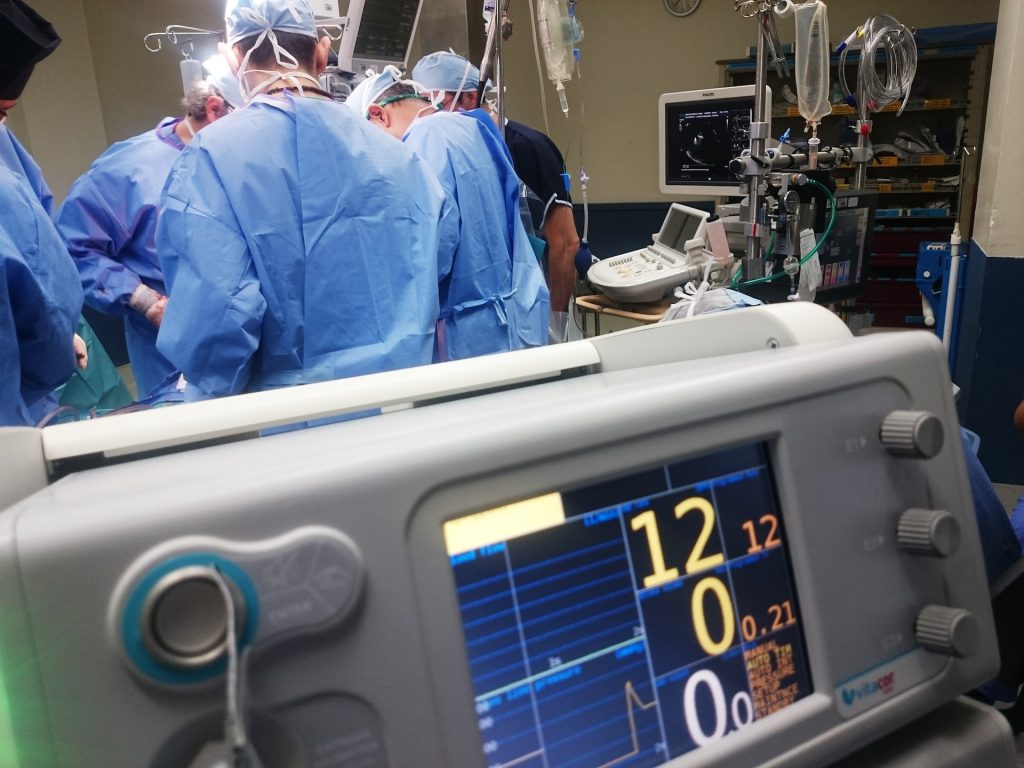Troponin Levels Help Inform When to Perform Surgery after Heart Attack

New research from a large study published in the International Journal of Cardiology shows that timing of surgery for some heart attack patients can be improved by analysing troponin levels.
Troponin is a protein involved in muscle contraction that is released into the bloodstream after heart attack, with higher levels indicating more heart damage. Troponin levels help clinicians to determine whether a patient is having a heart attack, or myocardial infarction (MI), and to decide on treatment options such as coronary artery bypass graft (CABG) surgery.
The optimal time to perform surgery following an MI remains unclear. Previous reports have suggested that carrying out surgery in the first few days following an MI is associated with a higher risk of surgical complications and death by not leaving time for the heart to recover. As a result, following an MI, many patients who need bypass surgery wait for more than 10 days before surgery is performed.
Researchers in this study found that some patients who have lower levels of troponin would benefit from having earlier surgery. However, the researchers show that patients with very high troponin levels should have surgery postponed, as their risk of dying was higher if surgery was performed within 10 days of their MI.
There was no benefit in delaying surgery for those with low levels of troponin, according to the study.
Early surgery for MI patients
The researchers suggest that early surgery for MI patients with lower troponin levels would reduce overall length of stay and ease pressure on resources such as staff.
This is the first multicentre study to investigate the interaction between the extent of heart damage, as indicated by troponin levels, and the optimal time to wait for surgery in a large series of MI patients.
Dr Amit Kaura, lead author of the research, said: “The approach on the safest time to operate on patients following a heart attack varies in hospitals across the UK. Our study could help clinicians make more informed decisions on the best treatment plans for heart attack patients requiring surgery, based on their levels of troponin. It could also lead to a more standardised approach in the NHS on how we treat this patient group, leading to resources being used effectively, shorter stays and improved outcomes for patients.”
The study reviewed patients who had a non-ST segment elevation myocardial infarction (NSTEMI) due to a blockage to their coronary arteries who required a CABG.
About 20% of NSTEMI patients have a CABG. The optimal timing for CABG surgery in patients with uncomplicated NSTEMI has been unclear. Prior to the new research, some studies had suggested that early surgery was associated with higher mortality post operation. This has led to a tendency for CABG to be delayed if a patient’s condition remains stable. However, other studies had reported similar mortality rates after early versus late surgery, concluding that delaying surgery in all patients after uncomplicated NSTEMI is not warranted and does not improve outcomes. No previous study had investigated in a large group of patients whether there was an association between the extent of heart damage (as measured by troponin levels) and the wait for surgery on survival.
Heart data insights
The team analysed data from the NIHR HIC of 1746 patients with NSTEMI and unstable angina (UA) where insufficient cardiac blood supply leads to an MI. The cohort consisted of 1684 patients with NSTEMI and 62 with UA. The average age of the group was 69 and 21% were female. They underwent CABG within 90 days at one of five cardiac centres before their surgery between 2010 and 2017.
The researchers compared patients’ troponin levels, wait between surgery and outcomes after surgery within the first 30 days and over a period of five years. Pre-operative troponin level strongly predicted early mortality, and this was significantly influenced by the interval to surgery. The average wait for patients with high troponin levels to surgery was nine days. Sixty patients died within 30 days after surgery and another 211 patients died over a period of five years following surgery. They found that for those who had troponin levels of less than 100 times the normal upper limit, delaying surgery to after 10 days was not associated with lower survival. For patients with higher troponin levels, early survival increased progressively with a longer time to surgery – survival was highest in those who had surgery after day 10.
Dr Amit Kaura said: “For patients with troponin levels of under 100 times the normal upper limit, extending the waiting time or surgery did not improve early survival. This finding is particularly significant as two-thirds of patients presenting with troponin levels of under 100 are waiting on average 12 days for surgery after being admitted to hospital. There are potential cost saving implications with our research by performing earlier surgery in this group of patients with lower troponin levels”.
The effect of troponin levels pre-operation on survival was limited to the first 30 days after surgery. Late survival was determined by other risk factors, such as age and other co-morbidities such as hypertension.
Further studies are needed in the form of prospective trials to assess the impact of troponin and timing of surgery on survival following a heart attack, the researchers say.
Source: Imperial College London

